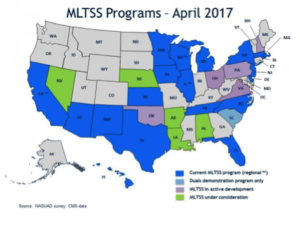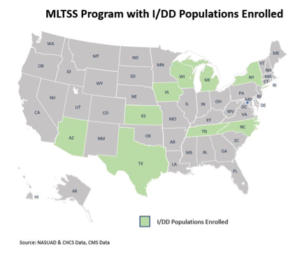MediSked Applauds Strong Disability Rights Advocacy at The Arc of North Carolina
By Linda Nakagawa, Market Policy Analyst, MediSked
Advocacy is the foundation upon which the disability community has grown into a powerhouse. The future of the movement depends on the many advocates across the country who are engaging on the local, state, and national levels to protect the rights of people with disabilities and support their inclusion in the community.
The Arc of North Carolina uses MediSked products for data tracking in their service delivery. The chapter is also an advocacy leader in the state, and we have long admired their strong commitment to their advocacy work. So we reached out to Melinda Plue, Director of Advocacy and Chapter Development at The Arc of North Carolina, to share some of the advocacy efforts the state chapter and its 23 member chapters have made this year.
The Arc of North Carolina has made use of the comprehensive advocacy toolkit provided by The Arc of the U.S. to play an active role in the fight to save Medicaid this year. Self-advocates and family members wrote powerful letters that were sent to The Arc to hand-deliver for state delegations. At the state level, The Arc of North Carolina has done media campaigns, lobbying, and rallies. The success of advocacy depends on real life stories, heartfelt letters as well as real data to back up the facts on which these issues are based.
Another area where The Arc of North Carolina has been especially active is in grassroots local advocacy and community engagement, in partnership with their member chapters. Some actions include:
- Barrier Awareness Day: The Arc of Davidson County is hosting Barrier Awareness Day, to give individuals without disabilities the chance to navigate through life as someone who does experience a disability. Participants engage in simulations that mimic mobile, visual, and hearing impairments and are taken out into the community. The event leads residents to really think about the accessibility of their community.
- Wings for Autism/Wings for All: Many chapters of The Arc in North Carolina participate in Wings for Autism®, a grant-funded program from The Arc’s national office that simulates an airport experience for individuals with autism spectrum disorder and individuals with IDD. The program gives families the opportunity to experience, at no cost, all the processes involved with air travel.
- Self-Advocates’ Conference: The Arc of Greensboro, The Arc of High Point, The Arc of Davidson County, and The Enrichment Center in Winston-Salem host a conference for self-advocates around the state. The conference, which is entering its sixth year, is planned by self-advocates and staff from the four chapters and focuses on vital information that self-advocates have identified wanting to learn more about. Beginning in March of 2018, this conference will be a part of the state’s annual Rooted in Advocacy conference, hosted by The Arc of North Carolina, as it has become so well-attended.
- Self-Advocacy Movement: Self-advocates must be decision-makers during conversations that involve the disability community and for causes they are passionate about: “Decisions ABOUT me should INCLUDE me.” The current board president of the state chapter is a self-advocate, and self-advocates are on just about every board of local chapters of The Arc. The chapters of The Arc are proud of supporting self-advocates to teach them how to get involved on boards, not only at The Arc but for other organizations in their community.
- Advocacy in Public Schools: Staff resources are dedicated to support families as they move through the special education process. Many local chapters and the state work together to empower families and teach them how to advocate for their children.
To know where advocacy can be most effective, you need to know who you serve and communities in which people with intellectual and developmental disabilities live alongside people without disabilities. MediSked partners with The Arc and supports chapters of The Arc across the country with MediSked Connect – Agency Management Platform. MediSked Connect is a platform that streamlines procedures and centralizes data with tailored workflows, detailed service documentation, holistic health data, outcome tracking and reporting, and integrated billing management that is implemented in a collaborative process with each agency.
This year, more than ever, we have been proud to partner with so many strong organizations as they deliver services in their community and fight for the future of services and supports for people with disabilities.











